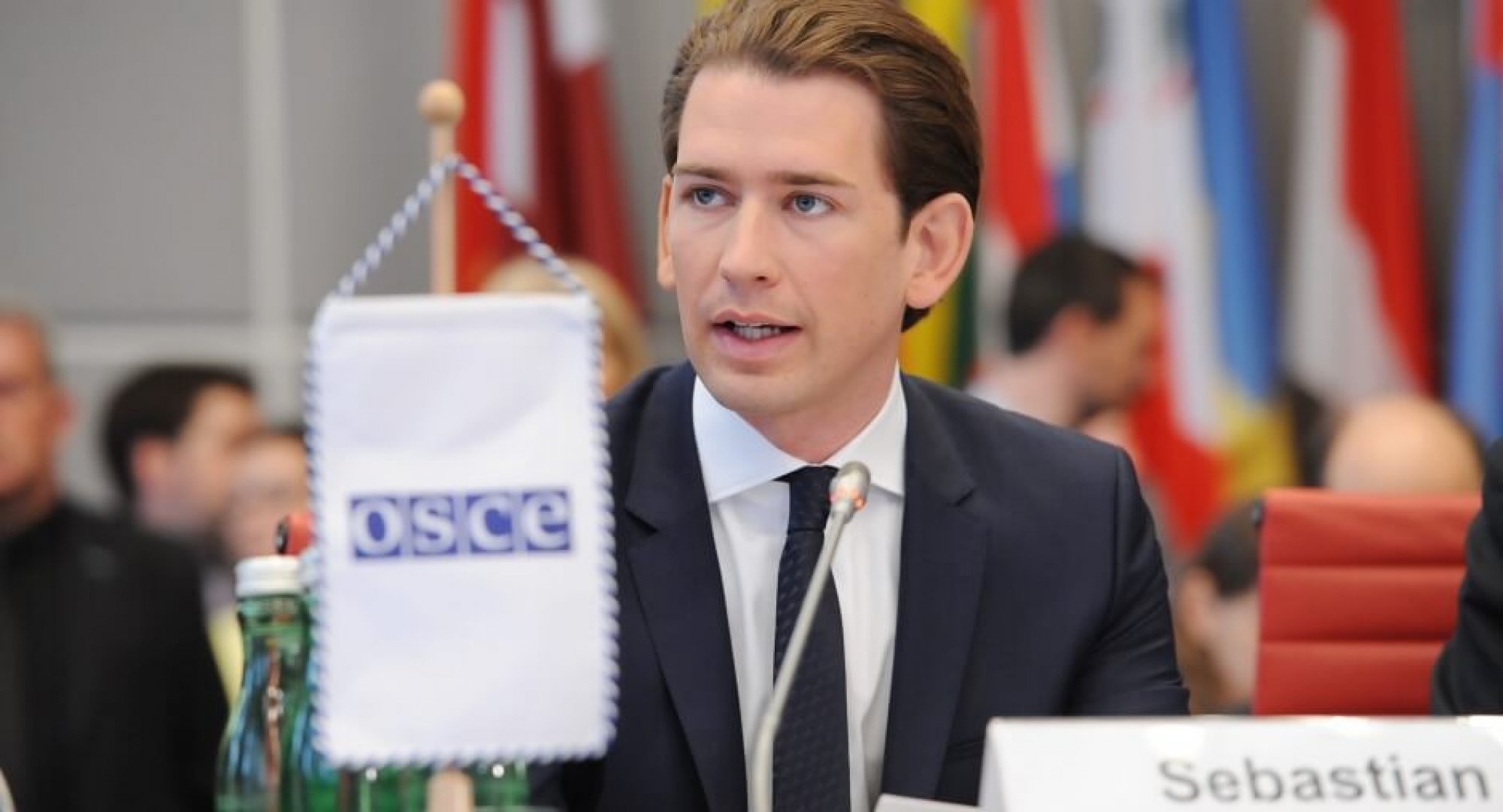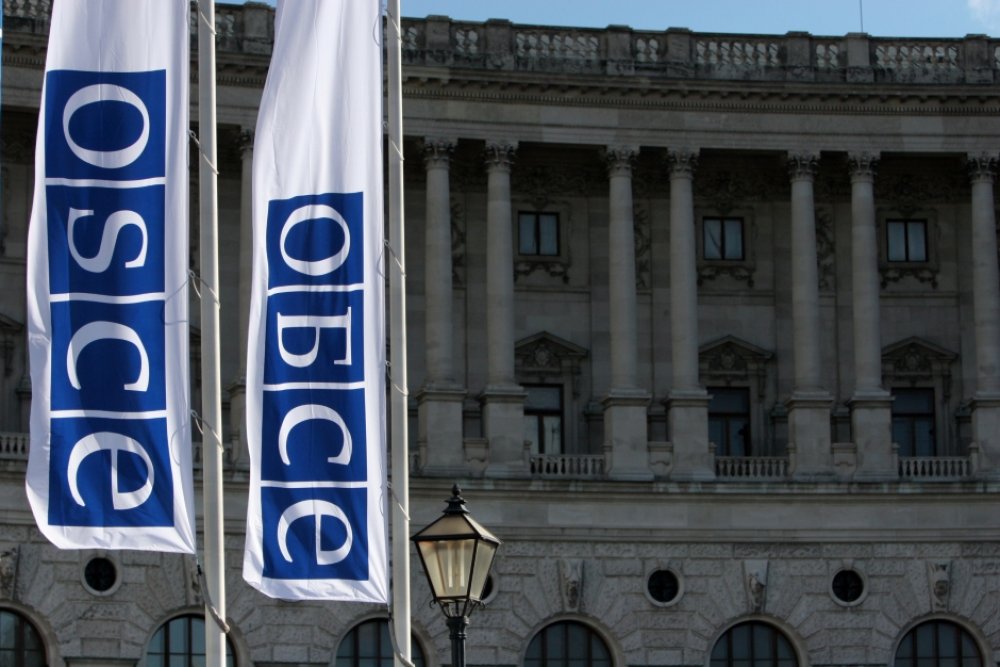OSCE/Micky Kroell

An Interim Assessment of the Austrian OSCE Chairmanship
In this written interview, OSCE Chairperson-in-Office, Austrian Foreign Minister Sebastian Kurz, shares his views about the challenges of the first seven months of the Austrian OSCE Chairmanship. He highlights some preliminary results, explains the added value of the so-called Structured Dialogue, and provides an overview of upcoming events until the end of the year.
1. How do you assess the first half of your OSCE Chairmanship? Which initiatives did you manage to get off the ground? What are some of the preliminary results?
Our initiatives have supported progress on the three main priorities we defined for our Chairmanship: defusing armed conflicts, preventing and combating violent extremism and radicalisation as well as restoring trust and confidence between the OSCE’s participating States. We have also ensured that the organization has the necessary resources to carry out the tasks that the participating States have given it, brokering agreement on a budget for 2017, enhancing the means of the Special Monitoring Mission in Ukraine and – last but not least – building consensus on the new OSCE top leadership during the informal ministerial meeting we held in Mauerbach in July.
The OSCE is operating in the context of a multitude of security challenges: armed conflicts and crises, violations of the organization’s principles and commitments and an accompanying lack of trust that has made garnering consensus on key issues extremely difficult. These challenges can only be addressed and overcome through critical but constructive dialogue between States, civil society and experts. I firmly believe that our organization provides an excellent platform to that end.
2. The security situation in eastern Ukraine is deteriorating. The summer is usually a time when ceasefire violations increase even further. What can be done to ease mounting tensions? How can accountability, both in terms of ceasefire violations and incidents against OSCE monitors, be enhanced? Could the role of the Austrian Chairmanship as bridge-builder and dialogue facilitator be further strengthened?
Austria strongly supports the negotiations within the Trilateral Contact Group and the Normandy Format. It is clear, however, that the political process has stalled. Countless violations of the ceasefire take place on a daily basis, leading to casualties on both sides. As OSCE Chairperson-in-Office, I have paid several visits to Ukraine to push for pragmatic steps to de-escalate tensions and ensure better protection and living conditions for the local population. It is imperative that the parties put aside politics and focus on the fate of the people in this devastated region – together we must prevent a humanitarian and environmental disaster in the Donbas.
In March, Austria facilitated an agreement that enables the OSCE’s Special Monitoring Mission to increase the number of monitors as well as improve the mission’s technical monitoring equipment. This increased monitoring capacity will provide a more accurate picture of the situation on the ground and improve our ability to hold the parties accountable for their actions, including threats or attacks on SMM personnel and restrictions of their freedom of movement.
3. How do you assess the success of the Structured Dialogue on military security threats thus far? What is its main added value?
We launched the Structured Dialogue on challenges and risks in the OSCE area based on the ministerial declaration we adopted last December. The current climate of mistrust and lack of transparency creates serious problems and consequences for European security. The Structured Dialogue is an opportunity to rebuild trust among participating States and develop effective responses to the current security crisis.
So far the meetings of the Structured Dialogue dealt with topics of high political and military relevance, ranging from threat perceptions to military doctrines and force postures. The open, frank and constructive exchanges – including among senior-level officials from capitals – on sometimes very controversial issues have already proven the initiative’s success. The ultimate goal is to foster a better common understanding between the participating States and to develop measures to ensure more transparency and predictability.
4. What are you hoping to achieve until the Ministerial Council in Vienna in December?
Although the Ministerial Council will be a culminating point for a range of topics we advanced throughout our Chairmanship, the OSCE’s work does not end in December. We are therefore focusing on the best way to ensure sustainable progress on these topics, rather than on the adoption of the highest number of decisions or declarations: quality matters more than quantity.
We have a full calendar of events for this fall: access to justice, confidence building, law enforcement and border security, implementation of our commitments in the economic/environmental and human dimensions. These events provide a good framework to foster dialogue on key issues in all three dimensions and consult on possible deliverables for the Ministerial Council.
One highlight of the coming months will be the presentation by Professor Neumann, my Special Representative on the fight against radicalisation, of a report on best practices. We are also preparing a Ministerial Declaration on the fight against violent extremism, radicalisation and terrorism, based in part on the results of a series of workshops we held this year with youth activists, aimed at identifying and addressing the main causes of youth radicalization.
Interview questions prepared by Stephanie Liechtenstein, Web Editor-in-Chief, Security and Human Rights Monitor.



Comments
* Your email address will not be published